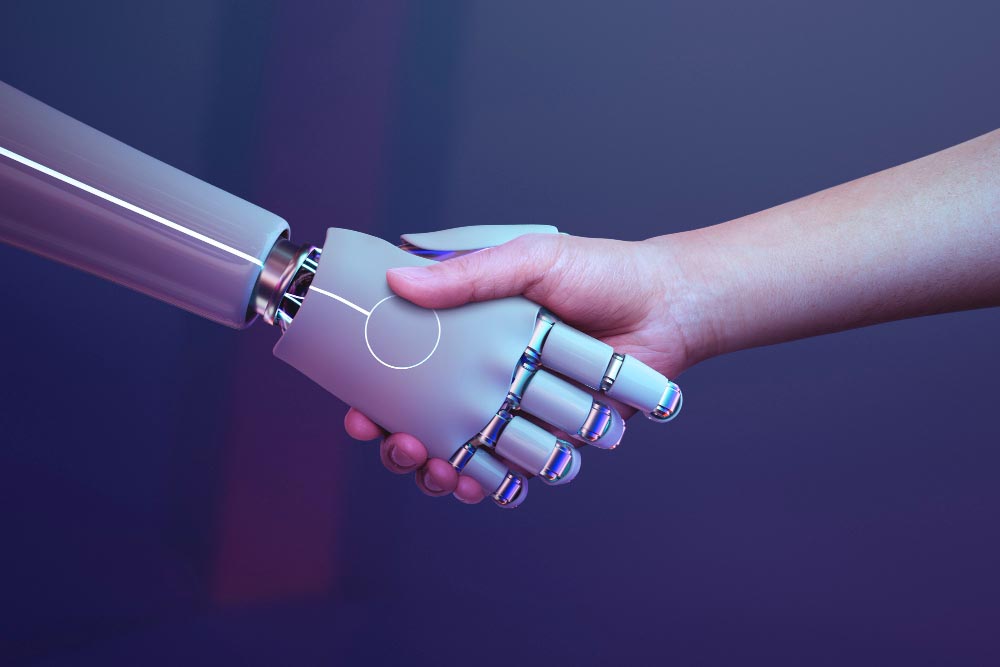BLOG
Check Our Latest Blog

How Artificial Intelligence May Be The Key To Humanity’s Future
Introduction
In recent years, there has been a lot of talk about artificial intelligence (AI) and its potential impact on the future of humanity. Some people have hailed AI as the key to solving many of the world’s problems, while others have raised concerns about its potential to do harm.
In this blog post, we will take a look at both sides of the argument and try to come to a conclusion about whether or not AI is the key to humanity’s future. We will also explore some of the ways in which AI is already changing the world and how it may continue to do so in the future.
What is Artificial Intelligence?
Artificial intelligence (AI) is the science of making intelligent machines. It is a field of computer science that is concerned with creating computers that can think and act like humans. AI systems can be used to solve complex problems and make predictions. AI systems can learn from experience and adapt to new data and changing environments. AI systems are becoming increasingly sophisticated, capable of performing tasks such as playing board games and recognizing human emotions. AI systems are made up of algorithms, which are sets of instructions that tell a computer how to perform a task. AI systems use data to learn, and they can be trained on large datasets or by interacting with users. AI systems can also be used to create autonomous robots or virtual assistants. AI technology is increasingly being used to improve customer experience and automate customer service tasks. It is also being used in healthcare, finance, and other industries to help automate and optimize processes.
The impact of Artificial Intelligence on Humanity
One of the greatest impacts of AI on humanity has been its capacity to enhance our productivity and efficiency. AI technologies such as machine learning and natural language processing (NLP) have revolutionized customer service and analytics. AI-powered chatbots eliminate the need for customer service agents, while AI-enabled recommendation engines can quickly provide users with the content they desire. Furthermore, AI technologies such as computer vision and image recognition have helped to revolutionize the way we interact with the world. AI-powered drones are capable of autonomously navigating their environment and capturing high-resolution images and videos in real time. AI- enabled smart homes have become increasingly popular, allowing users to control their environment with voice commands. Self-driving cars, meanwhile, have shown that AI can be used to make transportation safer and more efficient.
The future of Artificial Intelligence
As AI technology advances, it will no doubt play an even bigger role in our lives in the years to come. Some experts believe that AI will eventually be able to augment our abilities, allowing us to become more creative and productive than ever before. AI is expected to continue to be used in healthcare to automate tedious tasks, detect diseases, and provide rapid diagnosis. In the future, AI could be used to develop more advanced forms of energy and environment- friendly technologies, such as autonomous vehicles and renewable energy sources. Another exciting possibility is the use of AI for live streaming services, where users can watch content tailored for their interests. AI-powered robots are also widely being used in various industries and will no doubt become even more prevalent in the years to come. In addition, AI could be used to create new materials and technologies that could revolutionize the way we interact with the world. In summary, AI is playing an increasingly important role in our lives, and the technology will continue to revolutionize the way we do things in the years to come. AI promises to help us become more productive, efficient, and creative than ever before. It could also have a transformative impact on society, providing the tools necessary to tackle some of the world’s most pressing problems. Ultimately, AI may well be the key to humanity’s future.
